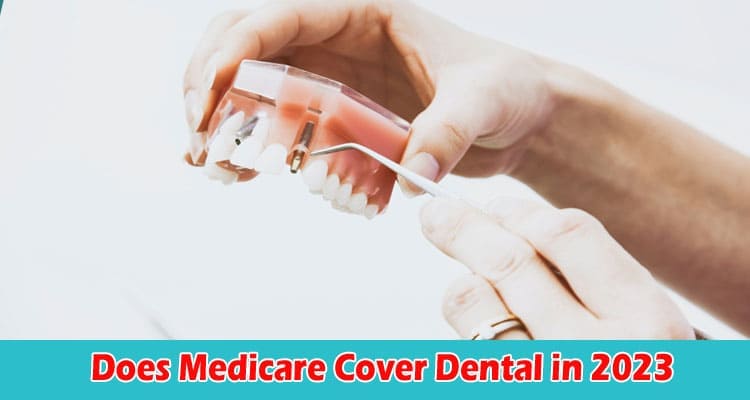If you’re approaching Medicare eligibility, you may wonder whether your dentally-related expenses are covered. Read on to learn more about the best way to target dental coverage with Medicare and determine if it could cover dental expenses.
A common misconception is that there is a specific listing for “dental” in the list of what does or does not qualify for coverage under Medicare.
-
Medicare Supplement Plans
There are many different plans to choose from, and the government allows you to pick your plan based on how much you can afford. Your plan must cover specific dental procedures, so make sure that they cover what you need – look out for higher costs for services such as getting braces in. Private health insurers offer Medicare Advantage plans and are not subject to federal or state minimum benefits. Premiums for these plans range from about $50 per month to over $400. These plans are not necessarily less costly but may provide more coverage than traditional Medicare. While the monthly premium may not be as low as some other options, it is often well worth the cost for specific procedures, helping you avoid more expensive procedures later.
-
Medicare Part B
Medicare Part B is the portion of the program where coverage for the services of a Physician, Physician Assistant, and Certified Registered Nurse Practitioner is covered (some exceptions may apply). The coverage provided under Medicare Part B is available whether you have Original Medicare, a Medicare Advantage plan, or a stand-alone Medigap policy. It’s also available 365 days out of every year.
-
Medicare Part D
Part D plans offer prescription drug coverage. This part of the program is available wherever a Medicare-approved prescription drug plan is offered, whether a stand-alone policy or an employer-sponsored plan. There are different levels of drug coverage in the Part D program, and each is available as a stand-alone policy. It’s essential to find out if you’re eligible for prescription drug coverage and which plan works best for you.
-
Medigap Policies
Medigap plans to increase your coverage, which can help you avoid paying a Part B deductible when you see your dentist. They also offer emergency medical coverage that helps you avoid high costs after an accident or emergency. As dental care costs increase, these plans can help offset the cost.
Medigap policies A-L must cover at least 85 percent of Medicare costs and are available in several forms. Suppose a policy is not offered directly by an insurance company but is guaranteed renewable. In that case, it must offer the same benefits, features, and price as policies available from private insurance companies.
-
Eligibility for Coverage
Medicare covers dental expenses when they relate to age-related physical changes, in addition to the diagnoses and treatment of diseases. Each qualified medical expense is covered at 50% by federal insurance and 100% by state-sponsored health insurance. Any patient admitted to a hospital stays in that facility for more than 24 hours and is automatically covered by Medicare for any dental work necessary after an accident or illness that may have occurred during their hospital stay.
-
Dental Services to Treat a Preventable Disease or Condition are Considered
Medicare also covers Medicare beneficiaries diagnosed with a condition that can lead to tooth decay. It can include the costs to repair or restore teeth due to susceptibility to tooth decay and the cost of treating periodontal disease. A beneficiary may be covered for the removal of teeth and a portion of the total cost to restore the tooth or reattach it. Patients are also covered by Medicare when they have received dental services to treat their disease, mainly if dental restorative work or replacement is necessary.
-
Medicare Covers Preventive Care for Patients Age 65 and Older
If your dentist recommends cleaning or preventive care for your teeth at age 65, you are eligible for coverage under Medicare. Dental services necessary for disease prevention, including any treatment for infection or decay, are also covered by Medicare. If a dental professional recommends periodic cleanings, professional evaluation, and preventive care based on your general health history, you may be eligible for coverage.
-
Does Medicare Cover Checkups and Screening Procedures?
The Part B portion of Medicare and Medicare supplemental insurance can cover screenings and checkups, including dental cleanings. Dentists are the only option for cleaning braces or replacement of missing teeth. This coverage is based on preventive care recommendations by a dentist.
-
Medicare Reimbursement Amounts
Most states allow health insurance carriers to negotiate with dental providers to set reimbursement rates for eligible procedures and procedures that Medicare does not cover. It is essential to compare the reimbursement amount with the usual and customary charges for dental services by a provider in your area.
-
Deductibles
The Medicare program does not have a deductible. If you are enrolled in Medicare, you will pay the same premium every month, regardless of whether you have any medical expenses in that month. A supplemental insurance plan, such as a Medigap plan, may have its own deductible that must be met before your Medigap coverage becomes effective.
-
Medicare Does Not Cover Periodontal Services
If you are covered by Medicare and have periodontal problems, you must pay the total cost to receive treatment. Dentists can be reimbursed for treating gingivitis and irreversible conditions that lead to tooth loss. But if Medicare covers the diagnosis and treatment of periodontal disease, the dental provider cannot bill you for any related dental work.
The list of services eligible for Medicare coverage is constantly changing, making it difficult for people needing dental care to know whether the dental expenses will be covered. There is a list of what does or does not qualify for coverage under Medicare which is worth checking out. But you may have to meet specific requirements, depending on your circumstances.







